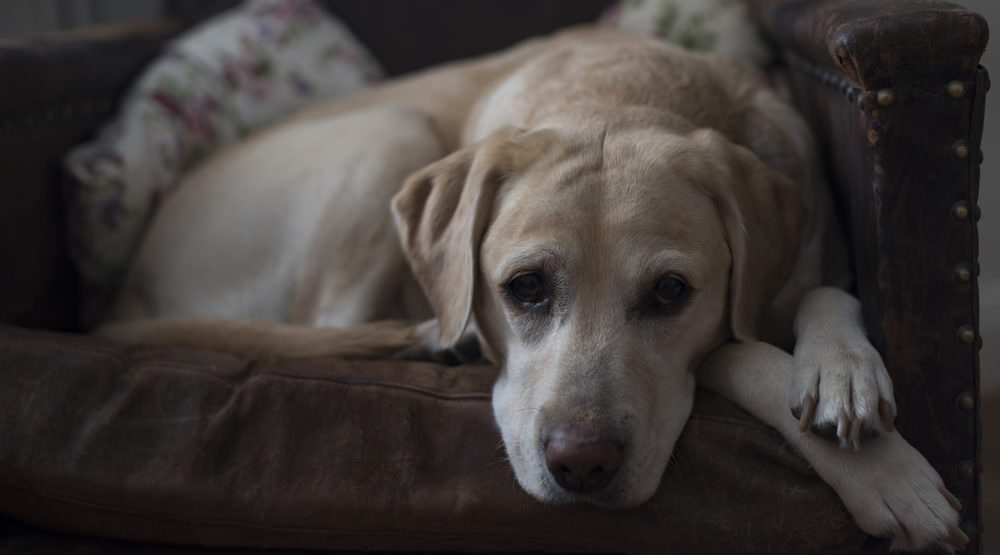A fear of darkness, called achluophobia, has been documented among humans for decades. Researchers as early as Sigmund Freud linked it to separation anxiety in humans. Certainly anxiety disorders are diagnosed and treated in dogs regularly, but before you decide that your dog has achluophobia, you will want to be sure that he is experiencing fear and that medical reasons for his fear have been ruled out.

The fear of darkness is typically thought to be more of a fear of what cannot be seen because of the darkness. Most people that suspect their dog to be afraid of the dark are perceiving a dog’s reluctance to go into darkened areas or anxiety about being left in the dark. Such dogs might exhibit a fearful body posture when asked to go into dark areas or avoid darkened areas. Dogs left alone in the dark might vocalize, salivate, eliminate or pace. Some dogs even struggle to escape the darkened area and can injure themselves or damage items. This type of anxiety is actually more likely related to separation, than the dark itself because animals are thought to be able to see better in the dark than humans.
If your dog seems to fear the dark, even when you are with her, you might consider if she is suffering from a vision deficit that could contribute to her fear and start by consulting a veterinarian. Vision deficits can be due to things like cataract formation or glaucoma and it is imperative that your dog be diagnosed and treated appropriately to protect her vision and save her from pain.
You could also try adding night lights to the darkest areas of your home and any areas where there is danger from falling, like stairs. Other means to reduce anxiety and restore your dog’s feeling of security in all areas of your home might include things like calming music (click here for an example) or pheromone diffusers.

If you think that your dog is suffering from anxiety from the dark (or any other reason), it is important to share this with your veterinarian also. Anxiety Disorder is a medical diagnosis and it can be treated and managed. Although there is no “one size fits all” treatment plan, there is no need for your dog to suffer.
Adding night lights and other means to help your dog feel calm are things that you can do at home, but don’t forget to consult your veterinarian. Vision deficits, aging changes and anxiety disorders are only some of the areas where your veterinarian can help.
Join the conversation! Find me and other dog lovers on Facebook by clicking here.
